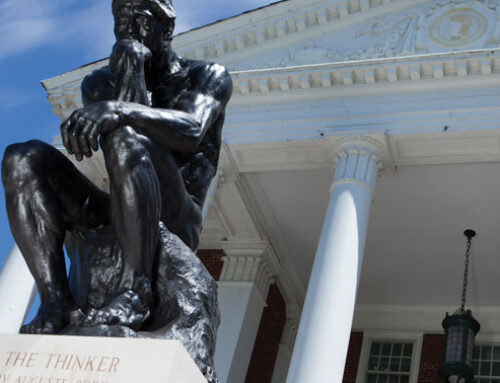By Lee Cole–
Paul Thomas Anderson has established himself as one of the premier American filmmakers in the modern era. With classics like “Boogie Nights,” “Magnolia,” and 2007’s monumental “There Will Be Blood” already behind him, the anticipation for his latest film, “The Master,” was high. Like many who went to see it the opening weekend, I was expecting something like “There Will Be Blood,” and some aspects were indeed similar. Both films included panoramic shots of vast landscapes in the American west, men struggling with power and submission and an exploration of the dangers of the American dream. But if there was one aspect that made this film truly great, and also distinct from Anderson’s other films, it was the character of Freddie Quell, played brilliantly by Joaquin Phoenix.
The first scene opens with Freddie Quell on a naval vessel in the South Pacific, during World War II. We learn rather quickly that Freddie is a bizarre man. He doesn’t fit in well with his fellow sailors, his jokes never quite hit the mark and his movements and facial expressions are disconcerting. He moves like an ape, seeming to drag his knuckles, and his face is contorted into awful grimaces throughout most of the film. We learn that he is an alcoholic, but the extent of his savage behavior goes far beyond alcohol addiction. He spends a good deal of time mixing various chemicals with alcohol and juice to mask the taste, and then either selling or giving away the concoction or drinking it himself. Some of the chemicals include paint thinner, torpedo fuel and mouthwash.
After coming back to the states following the war, Freddie struggles to fit in, taking jobs and eventually losing them because of his erratic and disturbed behavior. He meets Lancaster Dodd (Philip Seymour Hoffman) when he sneaks on to his boat as a stowaway, attempting to run from a probable murder charge (he had forced an old drunkard to drink too much of his concoction, causing his death). Dodd reveals himself as a kind of guru, and takes Freddie under his wing, promising to help him with his struggles.
Perhaps the most powerful scene in the film comes when Freddie agrees to undergo “processing” for the first time, a talking therapy meant to be like “auditing” in Scientology. He reveals his darkest secrets and regrets, and we see for the first time in Freddie true emotion. By unburdening himself, he gains some measure of peace, and decides to join “The Cause,” Dodd’s esoteric movement.
The character of Lancaster Dodd will surely draw comparisons to L. Ron Hubbard, the founder of Scientology, but there is not a simple one to one relation. There are many aspects that make Dodd different, and the story is about much more than Scientology. What is really at stake is the struggle between the animalistic and the rational – between control and chaos. There are not easy answers; Anderson is nonjudgmental about either Dodd or Quell, and it must be admitted that whether or not “The Cause” is bunk, it does help Freddie.
Hoffman and Phoenix will almost certainly receive Oscar nods, and Anderson may come away with Best Director. With some of the finest performances in years, “The Master” is not to be missed.
[email protected]
Photo courtesy The Weinstein Company






